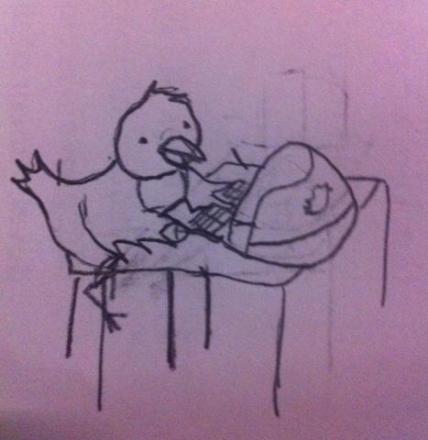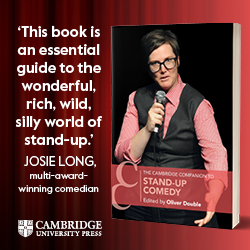
The reports in the press today of an alleged incident between a comedian and a journalist who had been live tweeting about his performance underline something I have been thinking about a lot recently. That in the age of social media the relationship between performer and critic is changing beyond all recognition.
I started thinking about this recently when Jason Manford wrote on Facebook about a dilemma. A reviewer had given his show a great review ("reads as a five") but when Manford looked more closely at the article it looked as if the critic had actually muddled him up in part of the piece with a different comedian. Some of the references did not seem to apply to Manford's material. Maybe a sub-editor had conflated two reviews or maybe the critic muddled up their notes.
Anyway Manford didn't know what to do. Should he contact them? Could he use any of the glowing if misguided remarks in his publicity material? At least as it was a good review Manford was not thinking of hunting down the critic and bringing a whole new meaning to the word "punchline". But the thing that struck me most about this was that Jason had taken the trouble to read a review in a fairly obscure online publication. I presume he doesn't google himself every morning (insert your own bespoke Manford-style smutty reference here), maybe he has a google alert set up so that these things ping into his inbox.
I suggested to him on Facebook that a lot of comedians don't read their reviews, but various stand-ups responded to say that of course they do. Manford suggested it was surely natural nosiness to read what people have said about you. The trouble is that if you take the good ones to heart you have to pay attention to the bad ones too, so ideally it is best to avoid them all.
Yet it is getting increasingly difficult to avoid your write-ups unless you never venture online. When I review a show for The London Evening Standard the paper sends out a tantalising tweet with a link to the performer in question so they definitely get it and at that stage, let's face it, who can resist clicking on a link? At least on here I only tweet the review to the comedian if I've been generally positive. There might still be something in there they might disagree with, but if they are tempted to open it it will not, hopefully, ruin their day and make them want to hire a hit man.
Those 140 characters can have all sorts of ramifications. I've not been punched by a disgruntled comedian but I was recently due to interview someone and then they unexpectedly pulled out of the interview. I don't know the exact reason or whether it was even their decision, but I did wonder if it might have been something I wrote about them that I thought was pointless at the time. I'm hardly the Mr Nasty of Comedy Criticism but I've been blocked on Twitter in recent years by a couple of household names, which suggests that maybe they take things to heart more than one would think.
In the old days, of course, it was a lot easier for comedians to avoid their reviews unless they made a special trip to the corner shop. When Frank Skinner wrote his book about going back on the road a few years ago he said that he didn't look at reviews. But when his book was published a collection of his reviews was reprinted at the back of the book, charting his progress from dodgy warm-ups to triumphant sell-out climax. I still don't know if Frank Skinner actually read what I wrote about his gig, but it is printed in his book, so surely he must have had a peep at some point...



